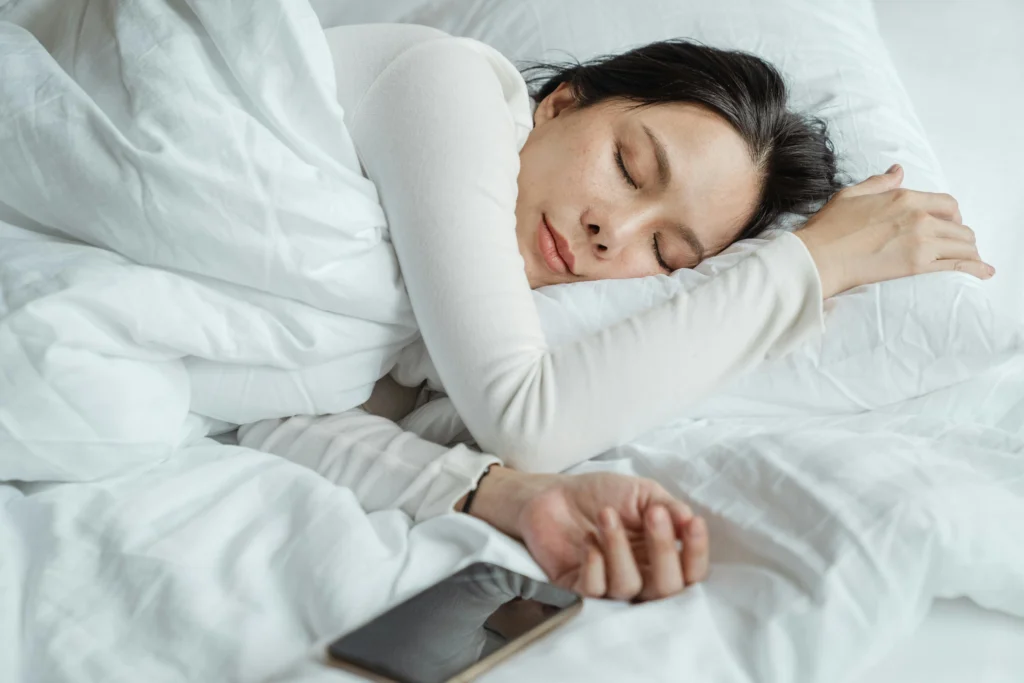Why Sleep Is So Important for Hormone Balance
Your body runs on a 24-hour internal clock called your circadian rhythm. This rhythm controls when your hormones are released, when your body repairs itself, and how your organs function. Poor or inconsistent sleep throws this rhythm off, leading to a chain reaction of imbalances in key hormones like:
- Cortisol, your main stress hormone. It should naturally drop at night, but if you’re not sleeping well, it can stay high and lead to poor recovery, anxiety, and belly fat.
- Insulin, which controls your blood sugar. Poor sleep makes your body less sensitive to insulin, which can increase cravings and weight gain.
- Leptin and ghrelin, your hunger hormones. Lack of sleep increases ghrelin (which makes you hungry) and decreases leptin (which helps you feel full).
- Melatonin, your sleep hormone. If you’re exposed to light too late at night or have a disrupted routine, your melatonin production may be too low to support restful sleep.
Signs Your Hormones May Be Affected by Poor Sleep
- You wake up feeling unrefreshed even after a full night’s sleep
- You have trouble falling asleep or staying asleep
- You feel hungry or crave sugar late at night
- You’ve gained weight or feel more bloated, even without major diet changes
- You feel wired at night but crash in the morning
How to Support Better Sleep Naturally
- Keep a consistent bedtime and avoid screens for at least 30 minutes before sleeping
- Use blackout curtains or an eye mask to block out light
- Take a relaxing bath, stretch, or journal before bed to unwind
- Avoid caffeine after the early afternoon
- Consider natural sleep support like magnesium glycinate, herbal blends, or melatonin. We offer personalized options based on your sleep type
When to Seek Help
If you’ve tried sleep tips and still feel exhausted or off-balance, your hormones could be contributing. We offer options for hormone testing and can work with your provider to identify where support is needed.
The Bottom Line
Sleep is not just rest. It’s a vital time for your body to reset, repair, and regulate your hormones. If you’re struggling with weight, mood, energy, or cravings, don’t overlook the power of better sleep.


